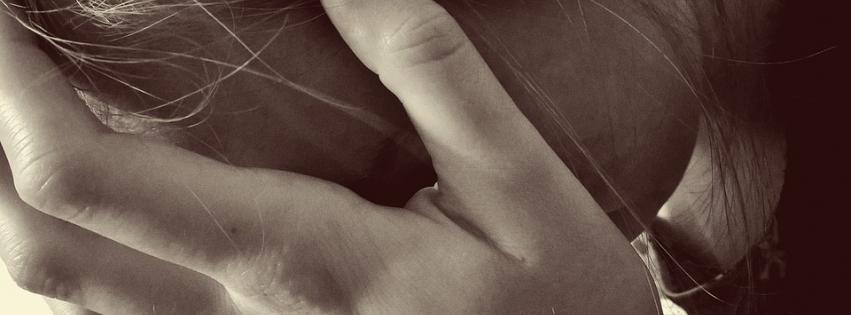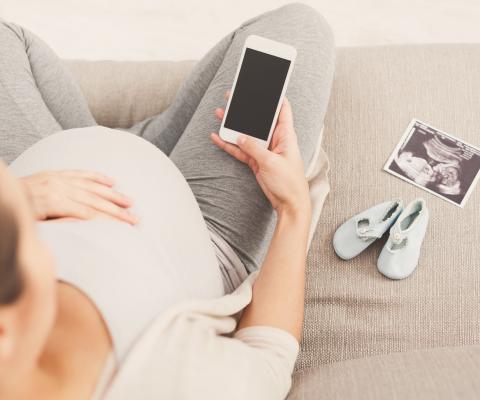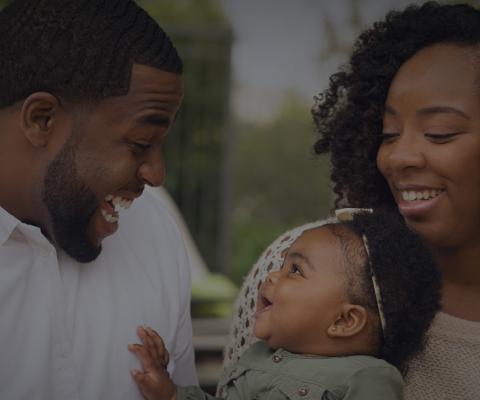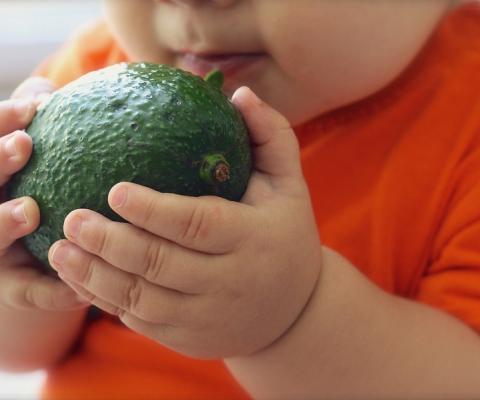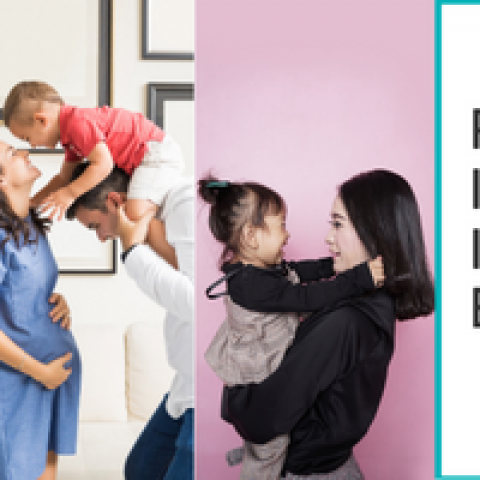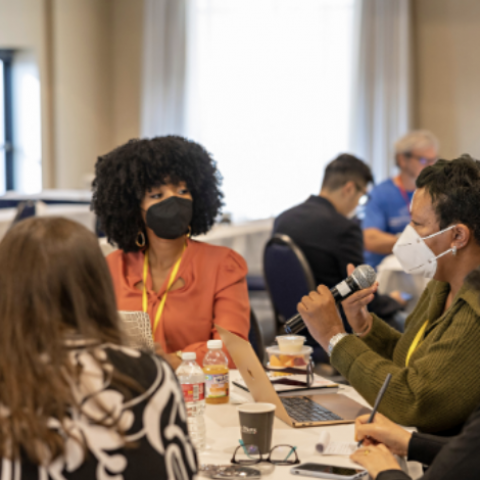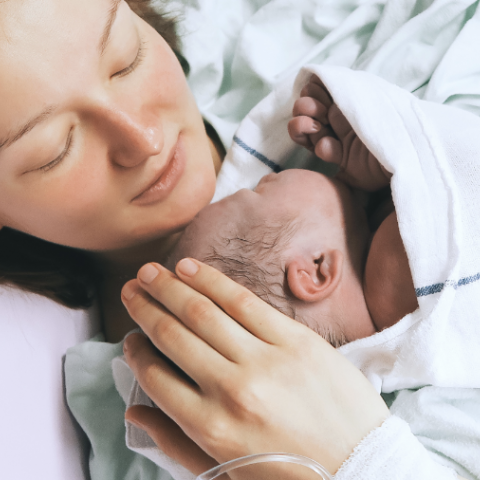If you’re a new mom, you may be feeling lots of different emotions after the birth of your baby. While many moms have feelings of happiness and joy after birth, others may feel sadness, anxiety, or fatigue. Or a combination of both! Being a mom is challenging and having a baby comes with a great deal of physical, mental, and emotional strain, as well as new hormones. These feelings are normal and may be due to new adjustments in your life and routine, or hormonal changes in your body that happen after your baby is born.
Experiencing weepiness or feelings of sadness, fatigue, or anxiety after birth are commonly called “baby blues” and usually start to occur four to five days after birth. In fact, up to 70% of new moms experience the “baby blues.” To learn more about “baby blues” and its symptoms, click here.
What’s the difference between “baby blues” and postpartum depression?
“Baby blues” typically go away within two weeks of giving birth. If your feelings intensify, prevent you from participating in your daily activities or caring for your child, or last longer than two weeks, you may have postpartum depression (PPD).
What is postpartum depression (PPD)?
Postpartum depression is a serious but treatable mood disorder that can affect any woman, regardless of income, geographic region, or background. For many women, it is their first experience with depression.
What are the risk factors for postpartum depression?
While researchers are still trying to better understand what causes postpartum depression, there are factors that may put you at higher risk for postpartum depression. These include:
- Family or personal history of depression or mental illness
- History of premenstrual dysmorphic disorder (PMDD or PMS)
- Complications during pregnancy, birth, or breastfeeding
- Stress related to caring for a newborn and recent life changes
- Having a baby with special needs (premature birth, medical complications)
- Lack of social support
- Marital or financial problems
It’s important to remember that, even though some women may be at higher risk for PPD, any woman can be affected.
What are symptoms of postpartum depression?
If you’re experiencing PPD, you may have trouble getting through the day and taking care of yourself and your baby. Other symptoms may include:
- loss of pleasure in things you used to enjoy
- eating much more or less than normal
- feeling guilty or worthless
- sadness and uncontrollable crying
- excessive irritability or agitation
- disinterest in the baby or family
- difficulty concentrating.
Typically, these symptoms may happen 2 to 3 weeks after the birth of your baby, but they can happen sooner or many months later. About half of women diagnosed with PPD actually begin experiencing depressive symptoms during pregnancy, so it’s important to talk to your doctor early on if you have concerns about changes in mood. To learn more on symptoms of postpartum depression, click here.
What should I do if I think I have postpartum depression?
If you’re worried that you may have PPD, or are concerned with mood changes, there are many places to turn to for guidance and treatment. You don’t have to wait until your first postpartum visit to reach out to your healthcare provider. Your doctor or mental health professional can determine whether you have postpartum depression and discuss your treatment options. There are also a number of support groups and hotlines/warmlines specifically for women experiencing PPD, listed in the Resources section below.
Remember...
It can be daunting to open up about PPD, especially in a time of your life when you may feel that you “should” be happy about your new family member and excited about motherhood. The idea of sharing your experience may produce feelings of guilt, embarrassment, or shame. However, it can help to speak openly with your partner, other mothers, friends, and family members about how what you’re going through emotionally.
Remember that, no matter how you’re feeling after having a baby, you are not alone.
During this overwhelming time, try to be patient and kind to yourself. Be realistic about what you can take on while caring for a newborn, and ask for help taking care of the baby or other daily tasks if you need it.
If you feel like harming yourself or your baby at any time, take action by calling a suicide hotline, or your doctor or mental health professional’s emergency number.
- Postpartum Support International Warmline: 1-800-944-4773(4PPD)
- National Hopeline Network: 1-800-SUICIDE (1-800-784-2433)
- National Strategy for Suicide Prevention LifeLine: 1-800-273-TALK (1-800-273-8255)
